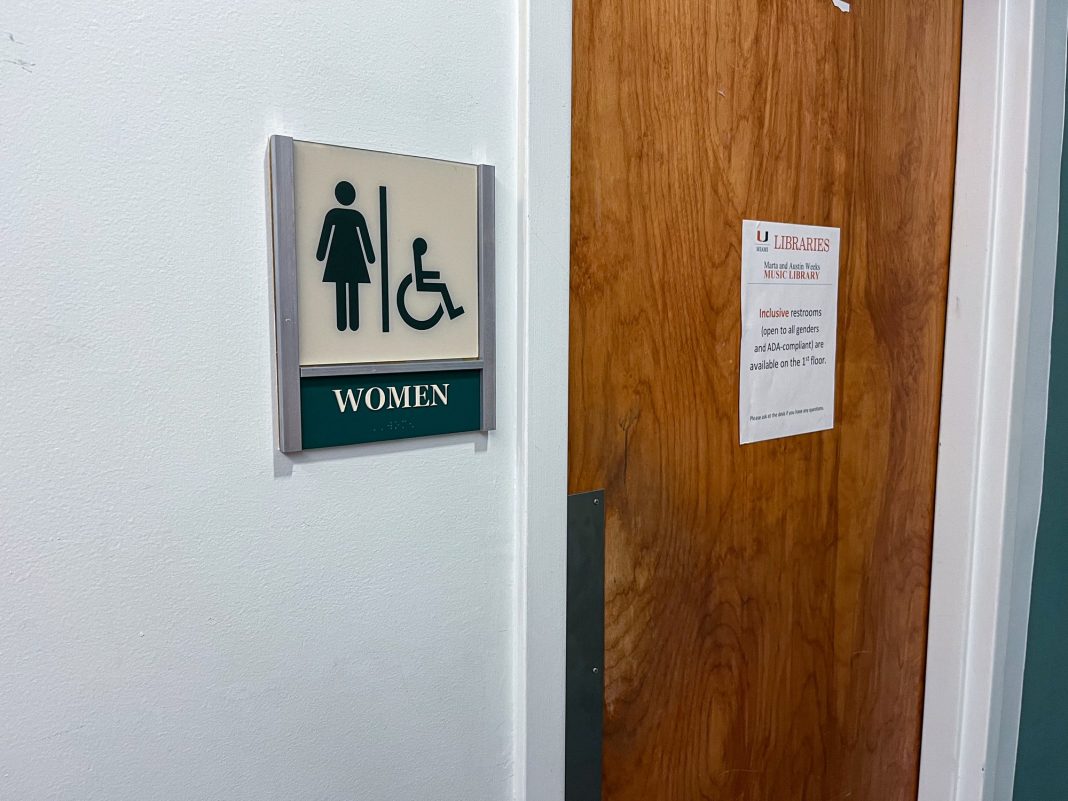
Commuter Senator Katrina Hernandez, a sophomore majoring in history, international studies and psychology, has noticed a lack of menstrual product accessibility around campus and decided to take action.
“I would get texts constantly from my friends like, ‘Hey, do you have a pad I can borrow?’ or ‘Hey, do you have a tampon I can borrow? This bathroom doesn’t have any’,” Hernandez said.
As a commuter who also has many commuter friends, Hernandez found it frustrating how rare it was to find menstrual products in bathrooms.
“Especially for commuters, if you forget to bring them, what are you going to do?” Hernandez said.
Bridget Dowd, the social media coordinator for PERIOD. and a freshman majoring in ecosystem science and policy, added that period poverty is prevalent among college students, which provides another advantage of having bathrooms stocked with menstrual products.
“It’s definitely not an issue that is talked about enough but definitely one that’s important,” Dowd said.
Dowd and the rest of the PERIOD. e-board agree that this Student Government initiative will help to make positive change at the University of Miami.
Taking matters into her own hands, Hernandez investigated exactly what the issues were with menstrual product convenience.
“I noticed that not only was there an issue in lack of products within the actual dispensers, but I started doing research and I went to almost every single bathroom in academic buildings and I noticed that some of them don’t have dispensers at all,” Hernandez said.
This inspired Hernandez to create a survey, with the help of the SG advisor, to find out if this issue was widespread among students.
“I wanted to make sure that this wasn’t a problem with just me and my friends,” Hernandez said.
Hernandez has received roughly 800 responses to her survey after being open for two weeks. The survey was publicized through group chats, flyers around campus and email blasts.
“I was very surprised with how many people responded to it and how much attention that it got. I was kind of nervous I wouldn’t get enough responses, but I’m very appreciative,” Hernandez said.
The survey contained questions that asked about student experiences with menstrual products on campus.
“I wanted to know how often they use them, about how many products they have used, if there’s ever been a time where there was an issue because there were no products within the dispensers or there were no dispensers at all,” Hernandez said.
There was also an open-ended section of the survey for people to leave additional comments, which Hernandez found to be very helpful in determining what improvements students would like to see regarding menstrual products.
“I’m glad I sent out the survey and offered the comments because I didn’t really know that people really wanted better quality products, more eco-friendly products and just better products in general,” Hernandez said.
In addition, Hernandez is hoping to start a QR code system in bathrooms as a way for people to make maintenance aware of empty dispensers.
The initiative first started because Hernandez wanted to get menstrual product dispensers in academic buildings throughout campus, but has evolved since the survey has gone out.
“After the survey, someone from the ECOAgency reached out about how they have started implementing eco-friendly menstrual products and now that is another thing I can add to my initiative because a lot of people in the survey called for better quality products,” Hernandez said.
Hernandez hopes that her initiative will encourage UM to make the changes to menstrual product availability and quality that students want to see.
“I’m currently in the research stage, so I still have a while to go before I get concrete answers from the administration about it, but I think the survey was definitely the right step forward,” Hernandez said.






